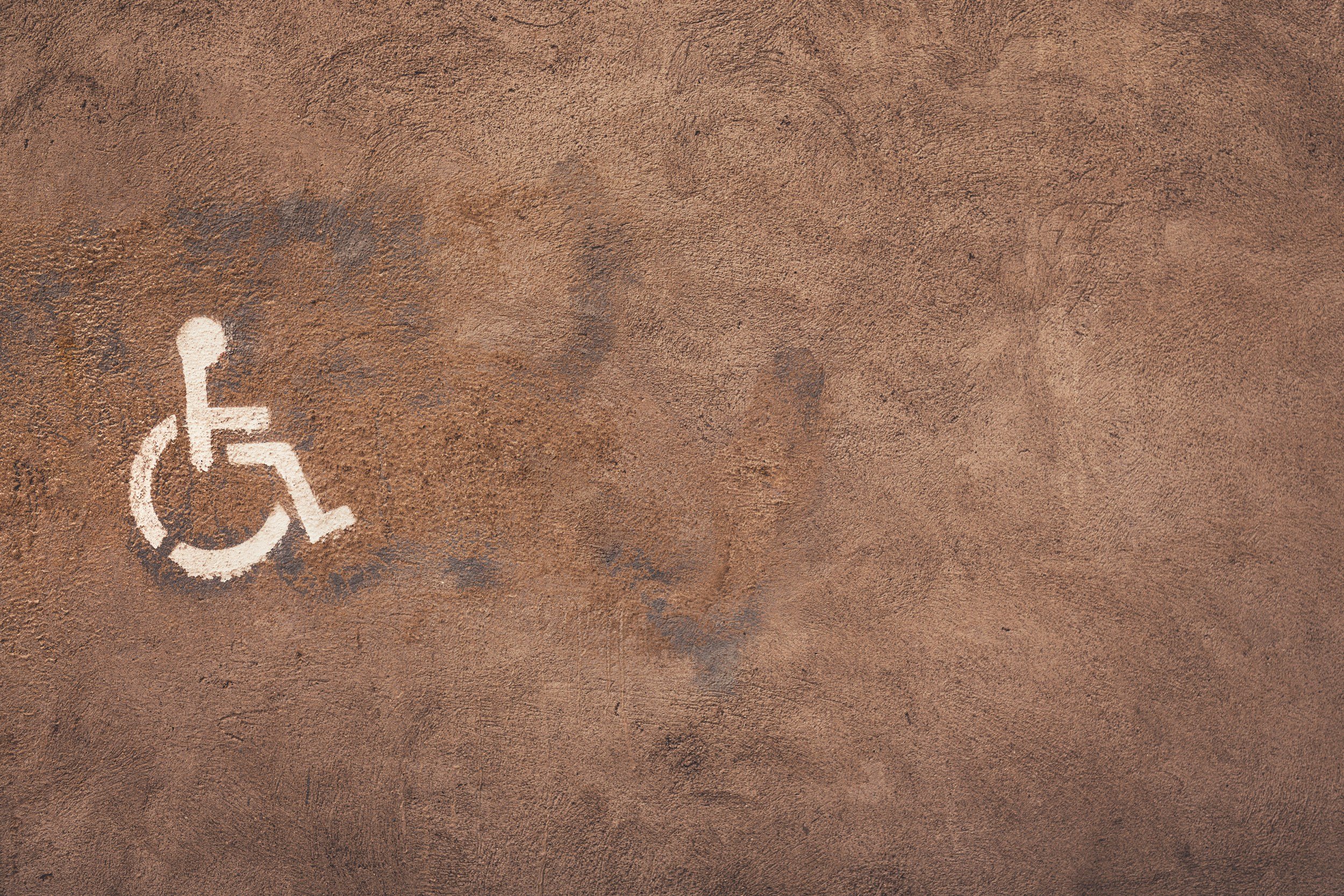by Lexi Hanson (Missouri, U.S.A.)
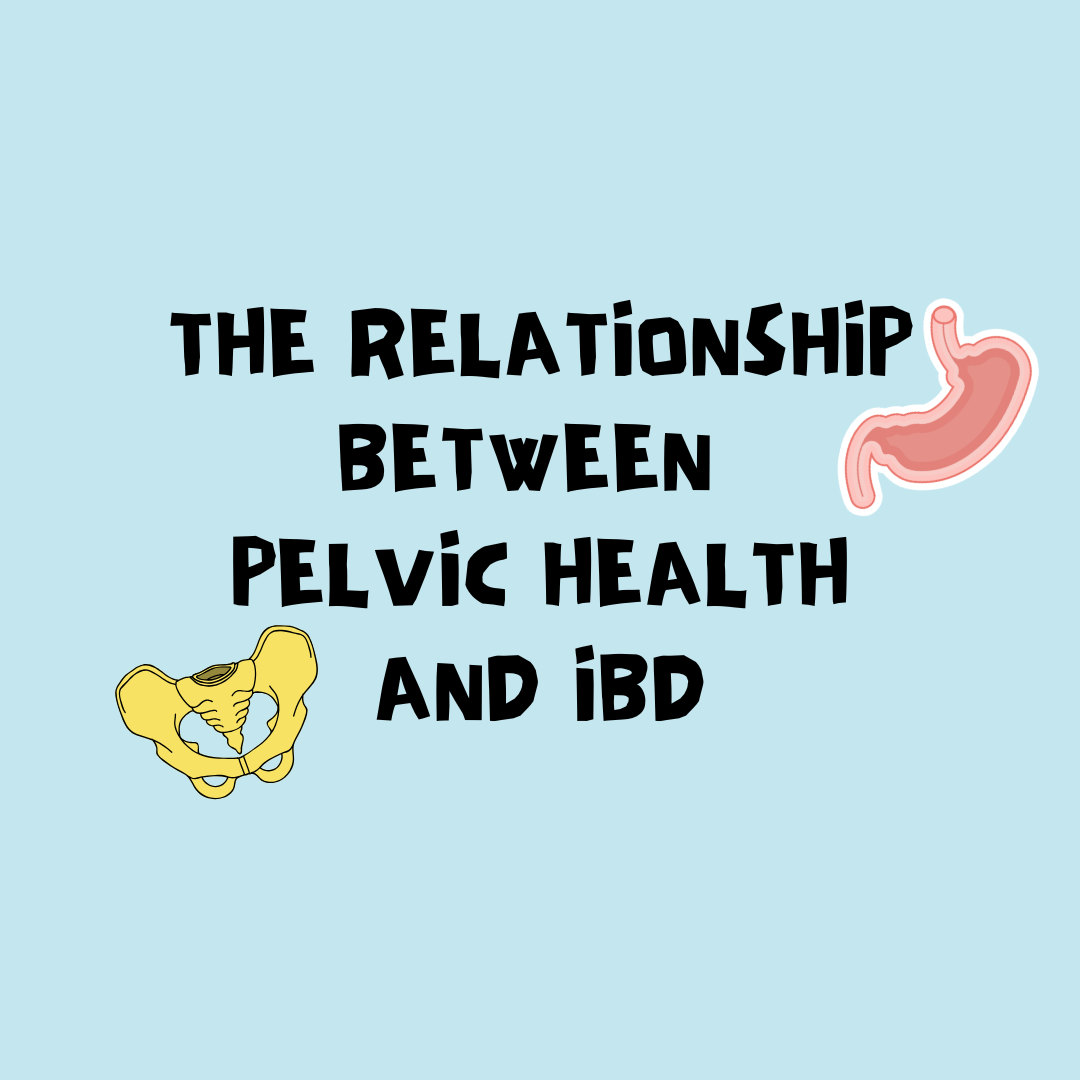
Black text on a light blue background reads “The Relationship between Pelvic Health and IBD.” There are graphics of a pelvis and stomach.
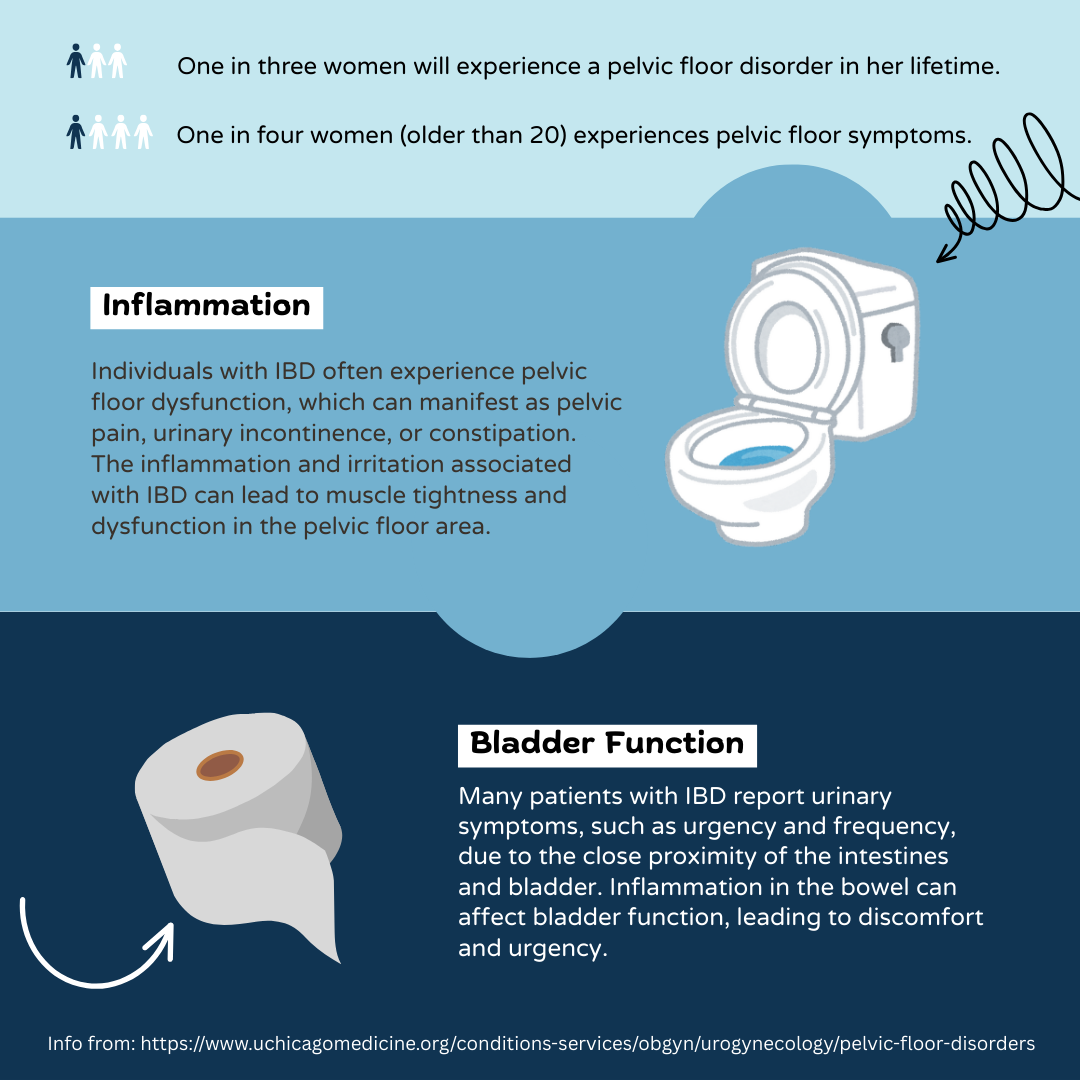
Infographic text reads: One in three women will experience a pelvic floor disorder in her lifetime. One in four women (older than 20) experiences pelvic floor symptoms.
Inflammation -- Individuals with IBD often experience pelvic floor dysfunction, which can manifest as pelvic pain, urinary incontinence, or constipation. The inflammation and irritation associated with IBD can lead to muscle tightness and dysfunction in the pelvic floor area.
Bladder Function — Many patients with IBD report urinary symptoms, such as urgency and frequency, due to the close proximity of the intestines and bladder. Inflammation in the bowel can affect bladder function, leading to discomfort and urgency.
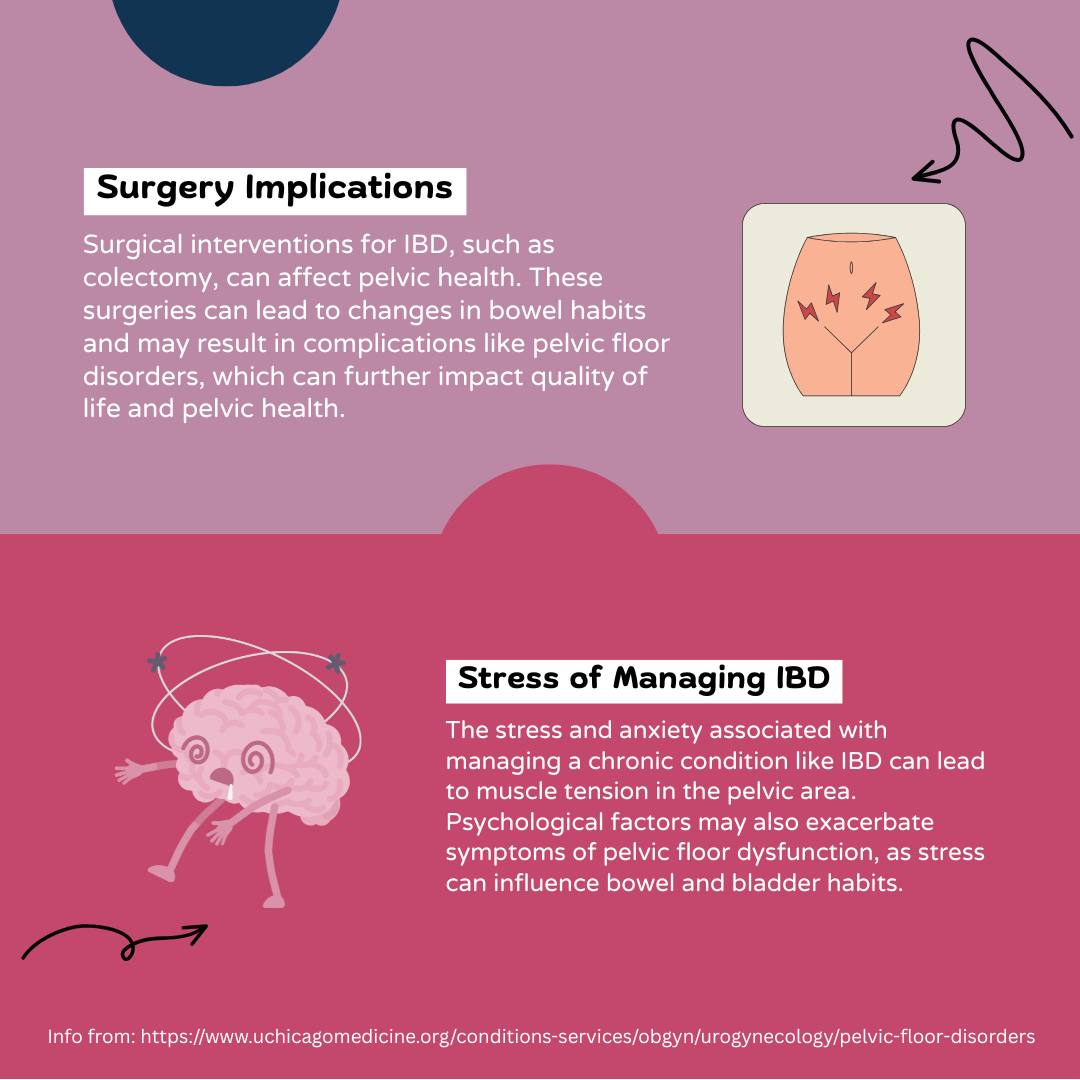
Infographic text reads:
Surgery Implications — Surgical interventions for IBD, such as colectomy, can affect pelvic health. These surgeries can lead to changes in bowel habits and may result in complications like pelvic floor disorders, which can further impact quality of life and pelvic health.
Stress of Managing IBD — The stress and anxiety associated with managing a chronic condition like IBD can lead to muscle tension in the pelvic area. Psychological factors may also exacerbate symptoms of pelvic floor dysfunction, as stress can influence bowel and bladder habits.
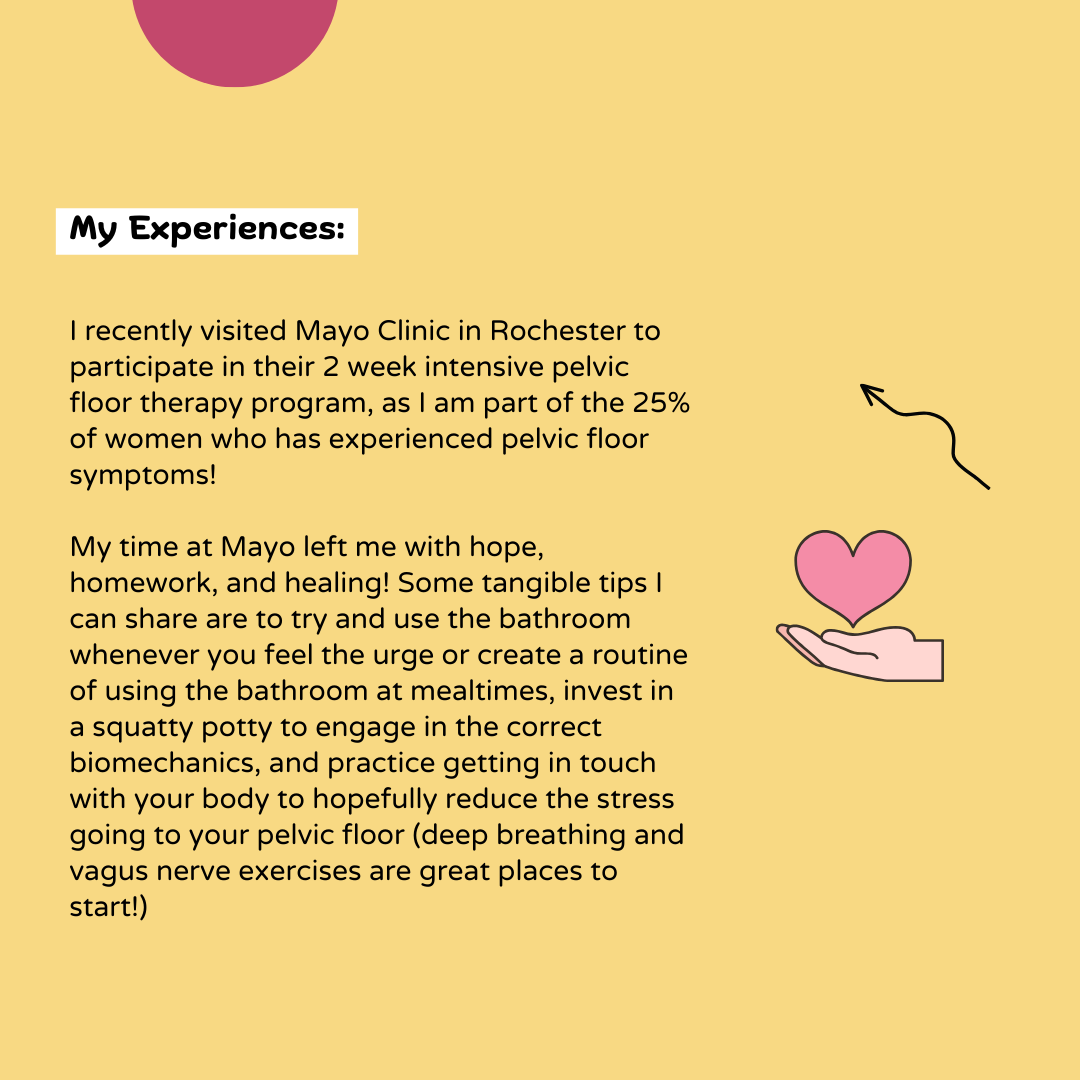
Infographic text reads:
My Experiences — I recently visited Mayo Clinic in Rochester to participate in their 2 week intensive pelvic floor therapy program, as I am part of the 25% of women who has experienced pelvic floor symptoms! My time at Mayo left me with hope, homework, and healing! Some tangible tips I can share are to try and use the bathroom whenever you feel the urge or create a routine of using the bathroom at mealtimes, invest in a squatty potty to engage in the correct biomechanics, and practice getting in touch with your body to hopefully reduce the stress going to your pelvic floor (deep breathing and vagus nerve exercises are great places to start!)
Info from: https://www.uchicagomedicine.org/conditions-services/obgyn/urogynecology/pelvic-floor-disorders.



